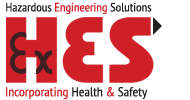Water jetting operatives working in the drainage industry are beginning to benefit from a new training course that helps develop essential knowledge and skills for when using water jetting for surface cleaning.
The Drain, Sewer and Surface Preparation practical module, or DSP for short, developed by the Water Jetting Association (WJA), includes new instruction on surface preparation using water jetting guns.
It develops skills that discourage the use of washdown nozzles attached to jetting hoses, which have no mechanism for instantly shutting off the water supply in an emergency.
The WJA is the UK member organisation for the water jetting industry. It sets standards for high and ultra high pressure water jetting and drain and sewer jetting, in the UK and internationally, through two codes of practice.
WJA Training and Safety Committee Chairman Steve Williams said: “We have developed this course in consultation with our drainage contractor members so their operatives have the skills needed to deliver the best service for customers safely and effectively.
“Drainage operatives often use water jetting to clean contaminated surfaces, for example to deal with sewage spills, or clean access chambers and open channels.
“We want to eradicate the use of washdown nozzles for these tasks. Water jets from guns can be instantly stopped by releasing the trigger. This provides a built-in safety mechanism to control water delivery.
“By adopting the DSP course, drainage contractors can align their operational procedures with the WJA’s red code of practice for the safe use of water jetting equipment in drains and sewers, which has just been updated, and which incorporates this new thinking on surface preparation.”
During the DSP module, which has been accredited by City & Guilds, operatives undergo two practical assessments: water jetting in drains and sewer pipes; and jetting for surface preparation with a jetting gun up to 275 bar (4,000 psi) that an operative can comfortably control.
The pressure limit has been set because drainage operatives commonly use lower pressures for washdown activities. Operatives who need to carry out surface preparation tasks at higher pressures must pass the standard WJA surface preparation module.
Topics include safe use of jetting equipment, water jetting techniques, jetting gun and nozzle types, risk assessment, use of protective clothing and equipment, site set-up, and emergency first aid.
Drainage operatives can still take the standard Drain and Sewer (DS) course, which does not have the surface preparation component.
Drainage operatives must pass the class-based WJA Safety Awareness course, which is also City & Guilds accredited, and either the DSP or the DS practical module to receive their WJA training card, which must be renewed every three years by attending the Safety Awareness Refresher course.
This article can also be found in the issue below.


